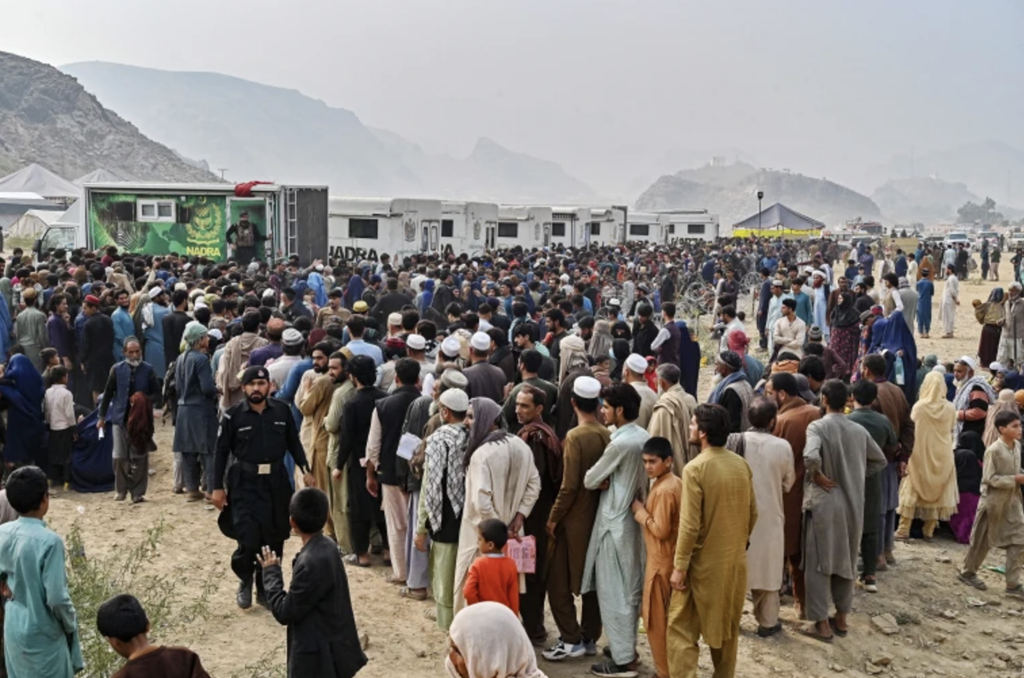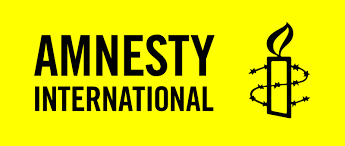Pakistan’s Afghan Refugee Exodus: A humanitarian crisis unfolding
AUTHOR: Tanaaz Shahariyar

Afghans preparing to leave a holding centre in Pakistan.
The harassment, detention, and mass deportation of Afghan refugees by Pakistan is currently a heated topic of debate. Pakistan’s recent actions have triggered widespread debate and concern. Pakistan is effectively sending these refugees into a region marred by an “ongoing human catastrophe”. Over 4 million Afghan refugees residing in Pakistan face an uncertain future under the rule of the Taliban–especially women and girls. The Taliban’s ideology is well-known, emphasizing strict gender roles and severely curtailing women’s participation and freedom in their life. It restricts women’s opportunities for education and employment, confining them to the domestic sphere.
Amnesty has persistently urged Pakistan to reconsider its decision for the last several months, stressing the risks these individuals face open returning to Afghanistan, though there has been no change the ruling. The government provided an ultimatum in which Afghans would be required to return to their country by November 1st. Despite the principle of non-refoulment—a core principle of international law in which a State is prohibited from returning individuals to countries where there is real risk of being subject to persecution, torture or human rights violation—Pakistan remains steadfast.
As stated by Livia Saccardi, Amnesty International’s Deputy Regional Director for Campaigns for South Asia, “Afghans are being used as political pawns”. The Afghan’s themselves have little choice in the matter. Many Afghans, including long terms residents and those who were born in the country are forced to leave and are shifted into deportation centres. They lack proper documentation and are often unregistered, making them vulnerable. Pakistan has also penalized illegal entry to the country, which adds another layer of issues for many of the Afghan refugees.
The deportation centres they are sent to–sometimes referred to as “holding” or “transit” centres–are not built according to specified law. Additionally, Amnesty has verified that in certain centres, the detainees are not allowed a lawyer, or communication with members of their family. These are clear violations of human rights. There is a severe lack of transparency in the process with outside authorities not allowed access to the deportation centres, and no information is made public.
The overall situation for the Afghan refugees is bleak. While the International Criminal Court conducted a preliminary examination from 2007 to 2017, the Taliban continues to commit war crimes and violations of humanitarian law. As per Amnesty’s documentation since 2021, the systematic violence and abuse inflicted by the Taliban can be amounted to a crime against humanity via gender persecution. And this several years, ongoing conflict has produced victims and survivors—who are still waiting for justice.
Pakistan will only be adding to the tally of victims by sending the Afghan refugees into a conflict zone. It is imperative that the voices of these people do not go unheard, that they are not subject to violence. Forcing them to return to an environment from which they escaped undermines their efforts to escape danger. It is needlessly cruel to send them back to a place that will, undoubtedly, harm, if not kill them.
This unfolding humanitarian crisis demands immediate attention and compassion, ensuring the safety and well-being of Afghan refugees who seek refuge from adversity.
Sources
https://www.amnesty.org/en/documents/asa33/7416/2023/en/
https://www.amnesty.org/en/latest/news/2023/12/afghanistan-icc-justice-should-match-victims-demands/
